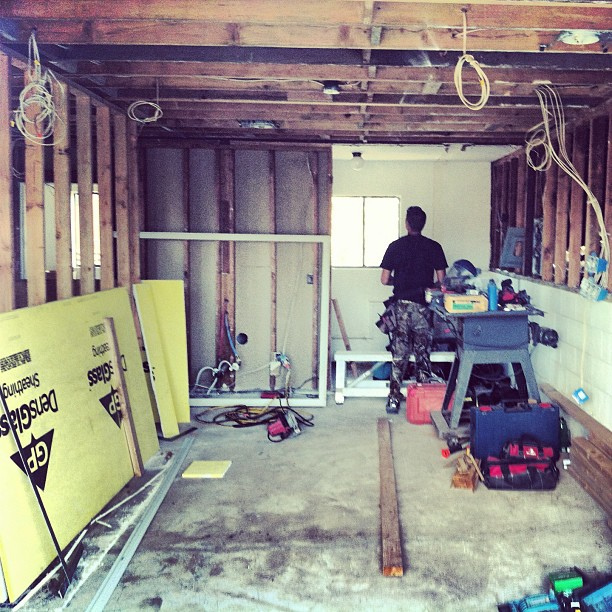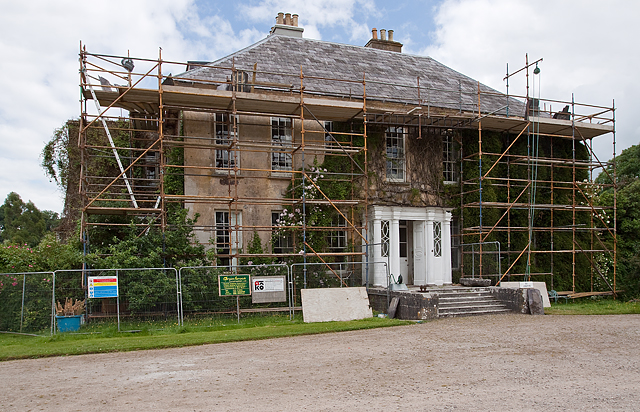Home renovations can be big jobs to undertake. It can often be overwhelming the amount of work and money that goes into these projects. You could be renovating your existing home after a long time. Or you might have bought a brand new property with the intention of doing some renovations to it.
If you want to cut down on the stress and complexities involved in the process, you should follow these steps. They will help you to get the work done that you want without succumbing to stress and anxiety.
Buy Sensibly
When you first begin a renovation project before you do anything else you need to make sure you buy right. You should inspect a property well before buying it. Get the place checked out by a property surveyor before parting with your hard earned cash. Find out what serious work needs doing, if any. Make sure you’re clear about what kinds of changes can be made to your property. It’s no good buying a place and going to do a load of work only to find that the changes you want to make can’t work. Or that you have to get permission. Or that the building can’t accommodate the work that you want to do.
Plan The Changes
This leads nicely into the planning phase. It’s important that you plan your changes well in advance. You need to have a clear idea of just exactly what it is you want to do. But you’ll also need to figure out what will work and what won’t. So it might be necessary to change or evolve your plans over time. This is why this phase is important. If you just dive in headfirst and start work on a project you may get halfway through and find it won’t work. This will waste a lot of time, money and effort and could cause you real problems. Planning will make the project much clearer and more successful. It will also allow you to account for any potential problems that might arise.
Take Safety Precautions
Safety precautions are so important when you are doing any renovation or DIY work. You need to take measures to make sure you protect your property from undue damage. But it’s also important to look after yourself and anyone else working on the project. You will need to ensure that you have all the right equipment. Trying to do a specific job with the wrong type of equipment is a recipe for disaster. You could also add safety measures to certain areas. If you’re working on the roof, you might add a freestanding weighted guardrail for balance and stability. There are other things to think about such as hard hats and goggles. Also protective clothing and footwear. You should treat the project like you’re on a building site. There may be a lot of dangers, and you need to guard against those.
Plan Your Budget
Once you’ve determined what you’re going to do and how long it’s going to take you’ll want to think about budget. This is an important step. One that is perhaps just as important as the planning process. If you’ve been planning a renovation, it’s a good bet you’ve been saving up. Renovation projects are not cheap so you can’t just start one on a whim. You will have to save money up, and you’ll have to know how much. Research the sort of work you want to do and work out how much it costs to do it. Once you’ve set a budget, you need to make sure you stick to it. Account for some excess when budgeting. You may go over budget; sometimes this is unavoidable. So have a safety net. But be careful not to go too far over budget as this can lead to serious financial problems at a later date.
There will no doubt come a point during the renovation process where you’ll need to think about bringing in an expert. If it’s a large project, this will be unavoidable. You’ll need to work out what work you can do yourself and what will need a professional. You should do as much as you can by yourself. For one thing, this is good future experience for you, but it’ll also save you money. But don’t attempt any important jobs if you have no experience. This will often make the situation worse and cost you a lot of money to rectify the situation. Bring in professionals at the right time and make sure you let them do their thing.
Account for Demolition
You’ll need to account for the fact that you may need to do some demolition work on your property. This is why it’s important to plan what kind of work you want to do beforehand. And also why it’s important to find out what is or isn’t doable with your property. Some of your ideas might be workable, but they may need you to demolish parts of the existing property first. If you need or want to do this then there’s a whole host of other issues that come with it. You’ll need permission and maybe insurance too. There’ll also be other safety and security issues to take into account.
Plan Alternative Accommodation
While you’re doing renovation work in your home, it might result in the place being uninhabitable for a while. If it’s just a small job, it shouldn’t be an issue as it may only affect one or two rooms. But if you’re undertaking a large project it’s likely your home won’t be habitable during the work. As a result, it will be necessary for you to find alternative accommodation for you and the family. Where you stay could well depend on the estimated length of the project. If it’s a long-term thing that’s going to last a year or more you might want to stay somewhere near the site. It’s likely you’ll want to pop over each day to check on the progress and lend a hand. So staying somewhere close would be preferable in this instance.
Don’t Do Too Much
It’s important that you pace yourself with the project. You should make sure not to do too much in one go. It’s easy to become overwhelmed by the amount of work and money involved in the project. If you try to pace yourself and be sensible, you’ll be more productive. It’s easy to try to rush and get everything done as soon as possible, but this is how mistakes are made. If you try to do little bits as often as you can, you will quickly begin to see progress. It also means you won’t have to dedicate set weekends or holidays to the project, and if it rains a couple of days it isn’t the end of the world.








